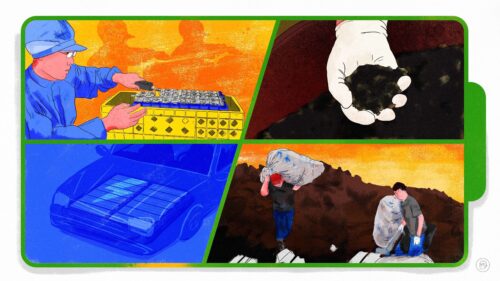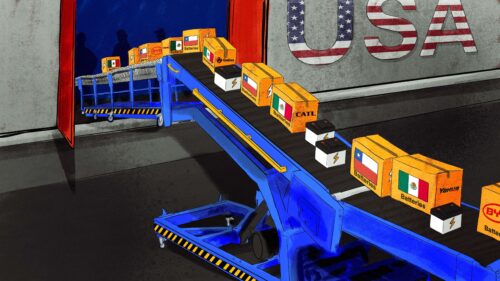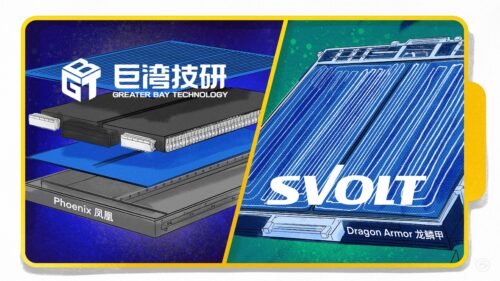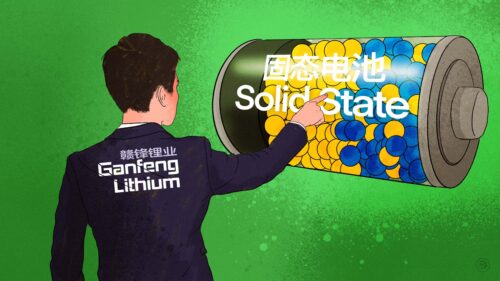Batteries and microchips: a new generation of the Wang family of Wuxi
In the space of three days, Wuxi Lead was approved to issue ADRs in Switzerland and Leadmicro had a big IPO in Shanghai. The two companies are run by a father and his son, and their contrasting experiences illustrate how a new generation of family business leaders is emerging in China.
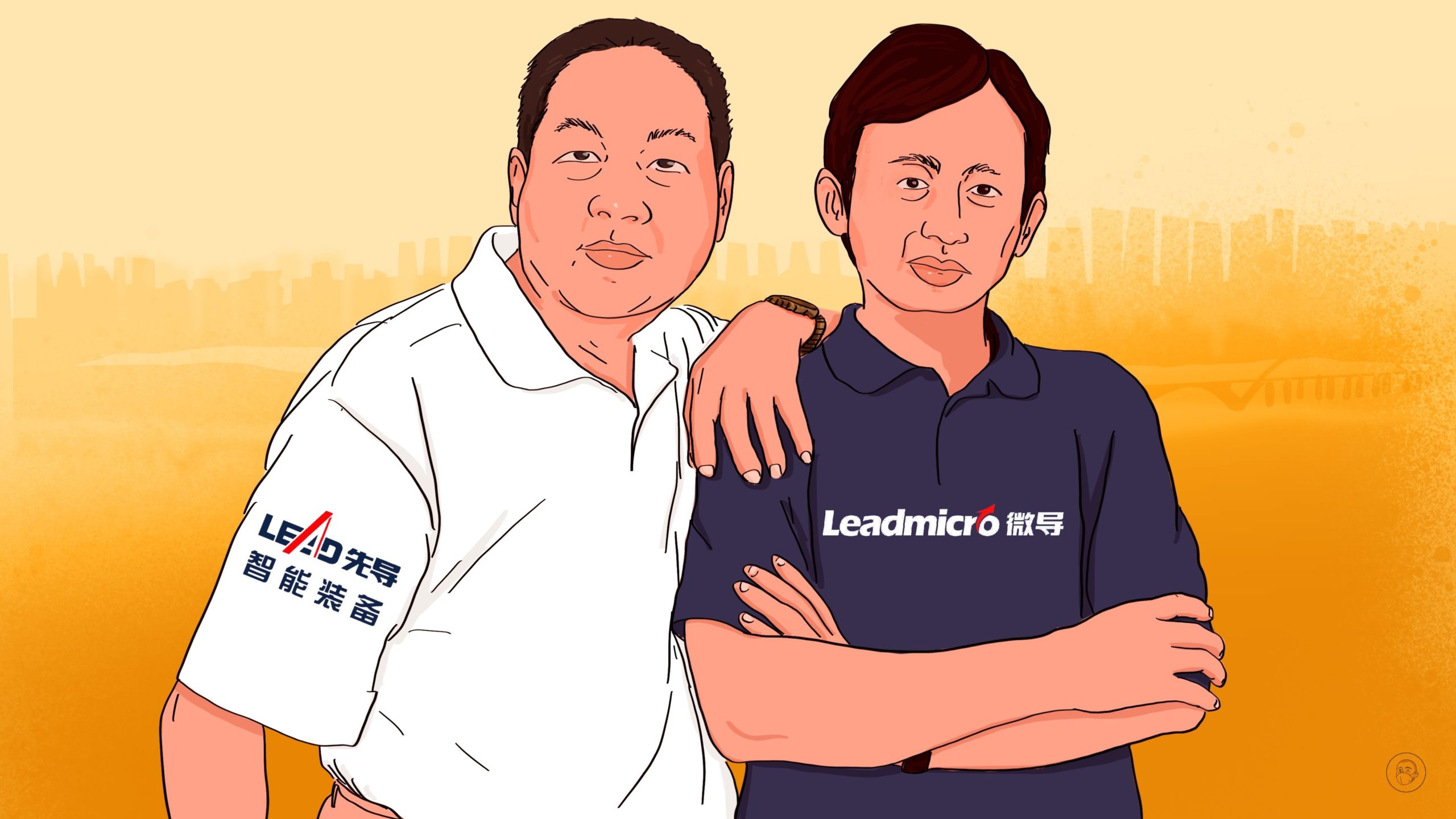
It has been a momentous week for the Wang family of the city of Wuxi, Jiangsu Province. On December 23, Leadmicro 微导纳米科技, whose main business is the atomic layer deposition (ALD) process for fabricating semiconductors and devices for the photovoltaic (PV) industry, was listed on the Science and Technology Innovation Board (STAR market) of the Shanghai Stock Exchange. Leadmicro had a great IPO: the company raised a total of 1.02 billion yuan ($146.98 million), and at the end of the first day of trading, the company’s stock price stood at 27.45 yuan ($3.94), an increase of 13.38% from the opening price, giving the company a market capitalization of 12.47 billion yuan ($1.79 billion).
The chairperson of Leadmicro is Wáng Lěi 王磊, and at just 29 years old he holds 53% of the company’s shares and now has a net worth of 6 billion yuan ($861.68 million).
Wang Lei is the son of Wuxi’s richest man, Wáng Yānqīng 王燕清, chairperson of the lithium battery components manufacturer Wuxi Lead Intelligent Equipment 先导智能, which was listed on the Shenzhen Stock Exchange in 2015 and currently has a market capitalization of 64.51 billion yuan ($9.26 billion). Wang Yanqing has an estimated net worth of 33 billion yuan ($4.73 billion). On December 26, Wuxi Lead received approval from the China Securities Regulatory Commission to issue Global Depository Receipts (GDRs) on the SIX Swiss Exchange, joining a widening range of Chinese new energy companies who are sidestepping U.S. stock markets and listing their shares on European stock markets.
China news, weekly.
Sign up for The China Project’s weekly newsletter, our free roundup of the most important China stories.
Contrasting experiences
Wang Yanqing was from a peach farming family in Wuxi, but attended a technical college in Changzhou, Jiangsu Province, and got a job in a factory in 1986. But when he got married in 1992, he could not afford a wedding ring, and when Wang Lei was born in 1993, Wang Yanqing had to borrow 2,000 yuan ($287) to look after his new family. In 1999, Wang Yanqing took the plunge and set up his own company, quitting his job and renting a dilapidated factory with two colleagues who were both above 60 years of age. Wang’s new company, which would become Wuxi Lead in 2000, manufactured non-standard equipment (i.e., custom equipment not based on industry standards and specifications). The first few years of the company were tough, and the factory was in danger of shutting down due to a lack of revenue. But Wuxi Lead eventually found a niche in manufacturing winding equipment for capacitors, which are used to store electrostatic energy.
The turning point for Wuxi Lead came in 2012, when the company shifted to producing capacitors and a range of other equipment for lithium-ion batteries. In 2014, Wuxi Lead signed a procurement contract of 59.96 million yuan ($8.61 million) with CATL 宁德时代, which was in the process of becoming China’s leading battery manufacturer. From here onwards, Wuxi Lead started to ride the wave of China’s electric vehicle (EV) and battery revolution:
- CATL became a regular customer of Wuxi Lead as well as its third-largest shareholder.
- In 2015, Wuxi Lead launched an IPO of 360.57 million yuan ($51.78 million) on the Shenzhen Stock Exchange
- By 2021, the company held a market share of more than 60% of China’s lithium battery winding industry.
In stark contrast to the long struggle of his father, Wang Lei attended Rutgers, the State University of New Jersey, graduating with a degree in computer science and mathematics. After returning from the U.S., Wang Lei worked at companies in Wuxi, and in 2015, his father set up a company that would later become Microlead, and in 2018 when Wang Lei was 25 years old, he became the director of this company. His father employed a number of older and more experienced staff at Microlead to guide his son in managing the new company. In 2021, Microlead reported revenue of 428 million yuan ($61.46 million), and the company went through various funding rounds before its big IPO this week. The company’s prospects are bright: it has a wide range of customers in China’s solar energy industry, and at the time of its IPO it had orders in hand of almost 2 billion yuan ($287.22 million).
The takeaway
The experiences of Wang Yanqing and Wang Lei are emblematic of the generational transitions currently occurring in countless Chinese companies, as an older generation marked by years of hardship and struggle give way to a new generation that arrived in wealth and opportunity.


